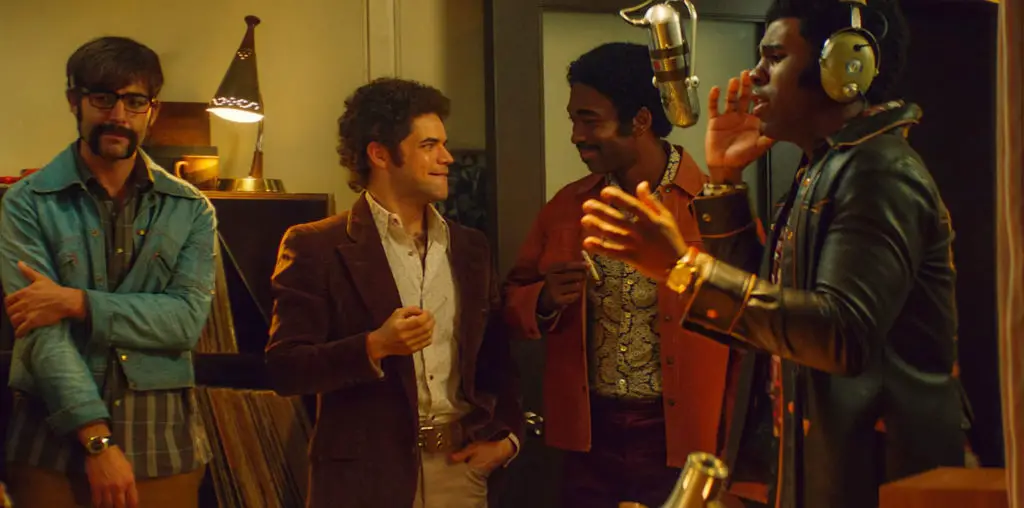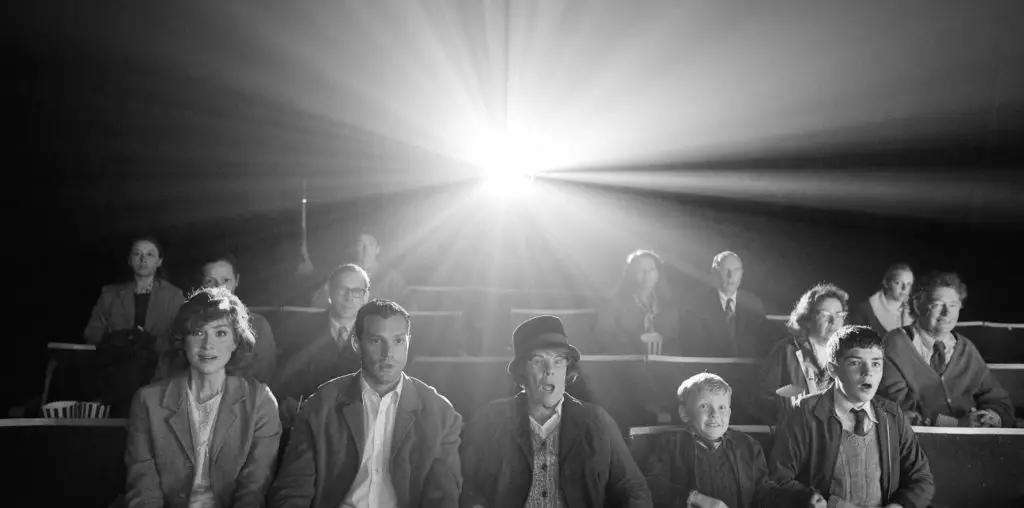
This film begins with a paragraph about man’s inner voice, sometimes thought to be the voice of God, and about the opportunities for finding fortune and happiness by heeding this voice. With this Jiminy Cricket inspired sentiment in our minds we are introduced to Johnny, a Catholic filmmaker, and his wife Veronica, a somewhat successful local artist. The couple share a loft in the city and constantly struggle to balance their relationship with their respective careers. When Johnny is approached by his shady producer Leon for up-front capital and considers dipping into his wife’s earnings behind her back, it soon becomes clear that a man’s inner voice is often seriously conflicted and anything but infallible. The film’s credibility in developing this theme benefits from a script which builds subtle nuances into the character of Johnny (played by Walter Cox). As Johnny delves into the writing process, the action is intercut with scenes from his film which play out in his head. With this technique Lucente reveals Johnny to us through his art. The device is not used as effectively as in, say, Amadeus, but film characters who inexplicably make bad decisions and ruin their lives are a dime a dozen, so I was grateful that Johnny’s motivation is actually explored. We see that Johnny is insecure in his work and that his dishonesty with his wife is taxing his Catholic guilt. When he confronts Leon about the producer’s criminal past, Leon feigns indignation at Johnny’s lack of trust. Johnny, who feels on shaky ground in terms of his own trustworthiness, is duped into a state of vulnerability by the sly producer who takes full advantage of the filmmaker’s selfish rationalizations. Johnny knows he’s making a mistake, but he stubbornly defends his decision to his friends, his priest and to himself.
Good character development like this only comes across with strong writing, direction and acting. It is disappointing, therefore, that the remainder of the film spirals so suddenly into predictable melodrama. There are no similarly intriguing explorations of Veronica, Leon, or his enigmatic and perpetually nervous son Sy, and the roots of the strained relationships between Johnny and Veronica and between Leon and Sy is only hinted at. There are certainly no surprises with respect to their ultimate fates. The film is not hampered much by the lack of chemistry between Johnny and Veronica (Liese McDonald), who, when angry, has all the charm of a cranky twelve year old; nor by the odd, imposing soundtrack which combines opera and ’80s style pop interludes! Nonetheless, we are left with a film that builds our expectations with a reasonably impressive cast and a strong sense of purpose, and then artificially conspires against these strengths with stale plot convention.

